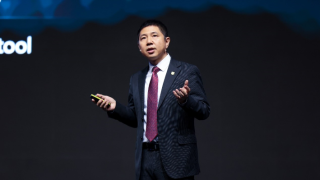|
|
For telcos, this vast country can sometimes appear like a small goldmine; it has the fifth largest population in the world, low mobile and broadband penetration rates, healthy competition between operators, a government-backed broadband scheme and will host two of the world’s biggest sporting events over the next five years: the 2014 World Cup and the 2016 Olympics.
Despite the fact that its market continues to be dominated by foreign investors, the country’s low penetration rate means that there is still plenty of room for new players. According to BuddeComm, while mobile penetration is well over 100%, this is largely because many consumers own more than one SIM, disguising the fact that one in four people in the country still do not own a mobile device.
The number and size of the global players who have entered the market over the last few years demonstrates the lucrativeness of Brazil’s mobile market. The four major mobile operators – Vivo, owned by Telefónica; Claro, owned by América Móvil; TIM Participações, a subsidiary of Telecom Italia; and Oi, which is 25% owned by Portugal Telecom – collectively hold over 97% of the subscriber base. Competition is already fierce among these international players, but with the approved entrance of MVNOs into the market earlier this year, this is likely to become even more intense.
Renan Oliveira de Barros Leal, VP for wholesale business at Telefónica Brazil, admits that the industry isn’t quite sure what will happen when MVNOs start operating: “It remains to be seen how the entrance of MVNOs in Brazil will shape the market,” he says. “There is already legislation in place but we don’t know what types of partnerships are going to emerge as a result.”
Data centres are being built and expanded across the country to handle the surge in data traffic. Due to the growth and changing needs of Brazil’s industries, businesses are demanding more sophisticated services from their operators. Gabriel Del Campo, SVP for Latin America and global product head of data centre services for Global Crossing, comments: “There is a shift in the demand from basic services, such as co-location, to more complex services such as outsourcing and cloud services.” Global Crossing’s Brazilian data centre currently occupies 5,000m2 and, due to predicted growth, is expanding by at least 50%.
The Brazilian government’s National Broadband Programme is a product of the country’s economic growth but will also contribute to its expansion. The Broadband Programme aims to accelerate economic and social development, increase digital presence and create more affordable broadband services.
Wally Swain, SVP of emerging markets at Yankee Group, says that all the telcos want to be seen ‘playing ball’ with the government: “The government has very cleverly dangled the expansion of the national broadband network in front of them to help with their backhaul issues.” Wireless operators, he goes on to say, will be forced to invest in backhaul over the next few years to accommodate the increasing use of data services.
Although the Olympics and the World Cup will not impact the country’s telecoms market on the same scale as its other industries, such as transport and construction, its importance cannot be ignored. De Barros Leal thinks that the games will simply act as a catalyst for what is already going on in the country’s telecoms market. “I don’t think the games themselves will cause a shift from what is already happening,” he says. “It may eventually increase the need to speed up deployment but every operator is planning for it.”
The games are also predicted to drive content and content delivery greatly over the next five years as the sporting events will be broadcasted worldwide. Swain suggests that video will be a main driver of growth in the region. “It wouldn’t surprise me if we come back in five years and video turns out to be the biggest driver of growth,” he said. Live streaming of the events will mean surging amounts of content being distributed across the globe from Brazil, which will in turn lead to new bandwidth requirements.
Swain explains that apart from being the biggest market in the region there is little to differentiate the Brazilian market from any other in Latin America. “All these countries are looking to jump start their economies by exporting resources and investing the surplus. All have similar strategies. All countries have some form of national broadband network,” he says. “But no other country could aspire to have the Olympics and World Cup within two years of each other.”




